

Improving Economic Mobility for Adult Learners Initiative
March 22, 2023
At a Glance
The Improving Economic Mobility for Adult Learners Initiative uses a two-tiered approach to improve postsecondary success for adult learners, with special focus on learners that have been most marginalized by existing systems: adults experiencing economic hardship and Black, Latine, and Indigenous populations. Achieving the Dream (ATD) and Jobs for the Future (JFF) support a concerted impact agenda by providing a suite of technical assistance and evaluation supports for state and institutional participants, including regular coaching, peer learning events, virtual and in-person meetings, and funding to enable states and institutions to design and implement changes that drive positive short-term impacts on learners and pave the way for broader, sustained, transformative change.
Initiative Overview
The Improving Economic Mobility for Adult Learners Initiative builds upon the current financial incentives and supports offered in many adult-focused programs to implement more transformative policies and practices to support the paths of adult students to economic advancement. We define adult learners as individuals who are 21+ years old and have not yet completed a postsecondary certificate, certification, or degree. Fundamentally, the student experience and pathways approach must be based on the understanding that adults who return to college do so with the goal of career and economic advancement.
Achieving the Dream (ATD) and Jobs for the Future (JFF) are supporting stakeholders at the state levels in Michigan, New Jersey, and Virginia, and three colleges within each state, to tackle some of the common challenges that hinder adult learners from enrolling in or completing a postsecondary credential. These stakeholders are changing policy and practice at both the state and institutional levels to improve career mobility outcomes for adult learners in community and technical colleges. Through this initiative, ATD and JFF are providing a suite of technical assistance and evaluation supports to teams in three states comprised of state higher education leaders and institutional leaders from three community and technical colleges within each state. This intentional combination of stakeholders ensures supportive alignment through policy and practice changes being made at the state level and within each institution on the state team.
Goals & Outcomes
- Improve the adult learner advising experience by using labor market data and reviewing prior learning experiences early in the student journey.
- Make measurable progress on at least two policy or practice changes at state and institutional levels.
- Tailor strategies to enhance support for adults most marginalized by existing systems: adults experiencing economic hardship and Black, Latine, and Indigenous populations.
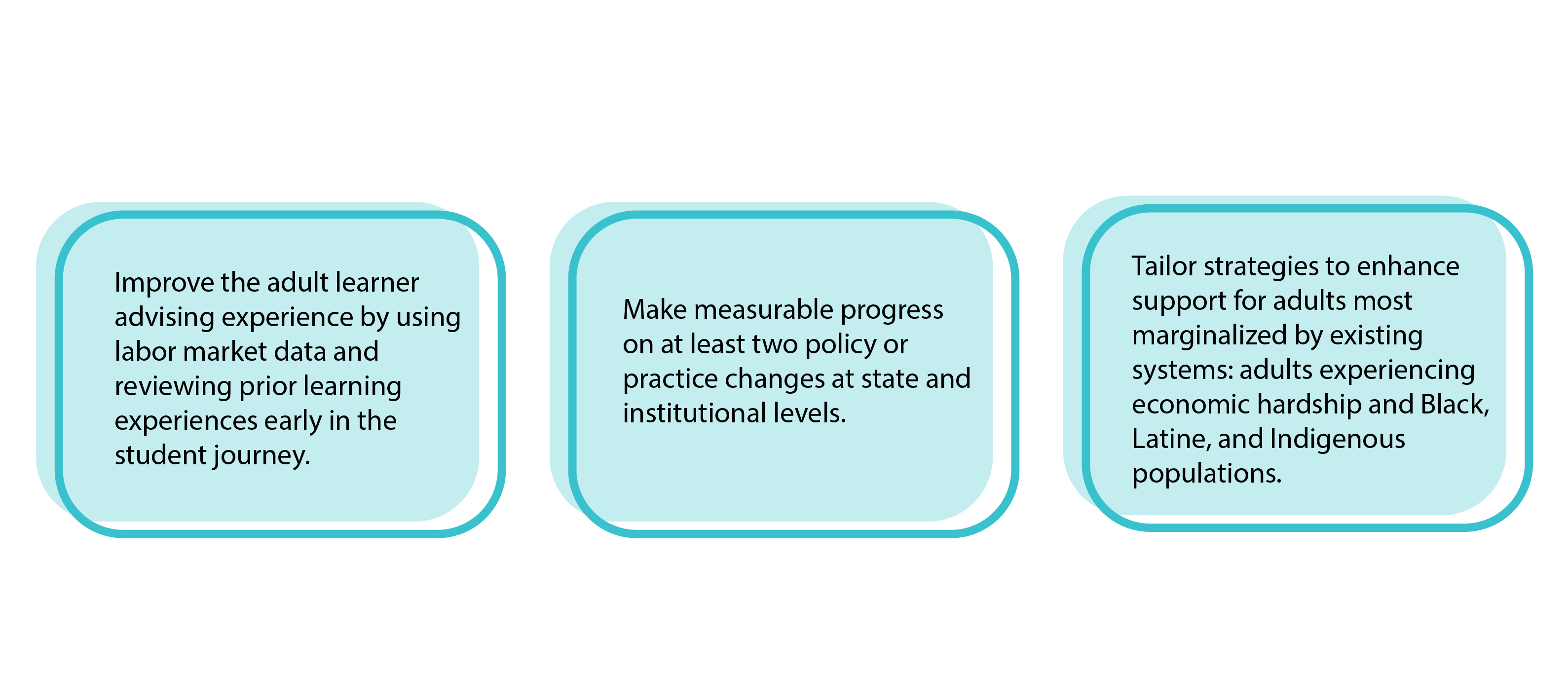 |
Policy and Practice Change Areas:
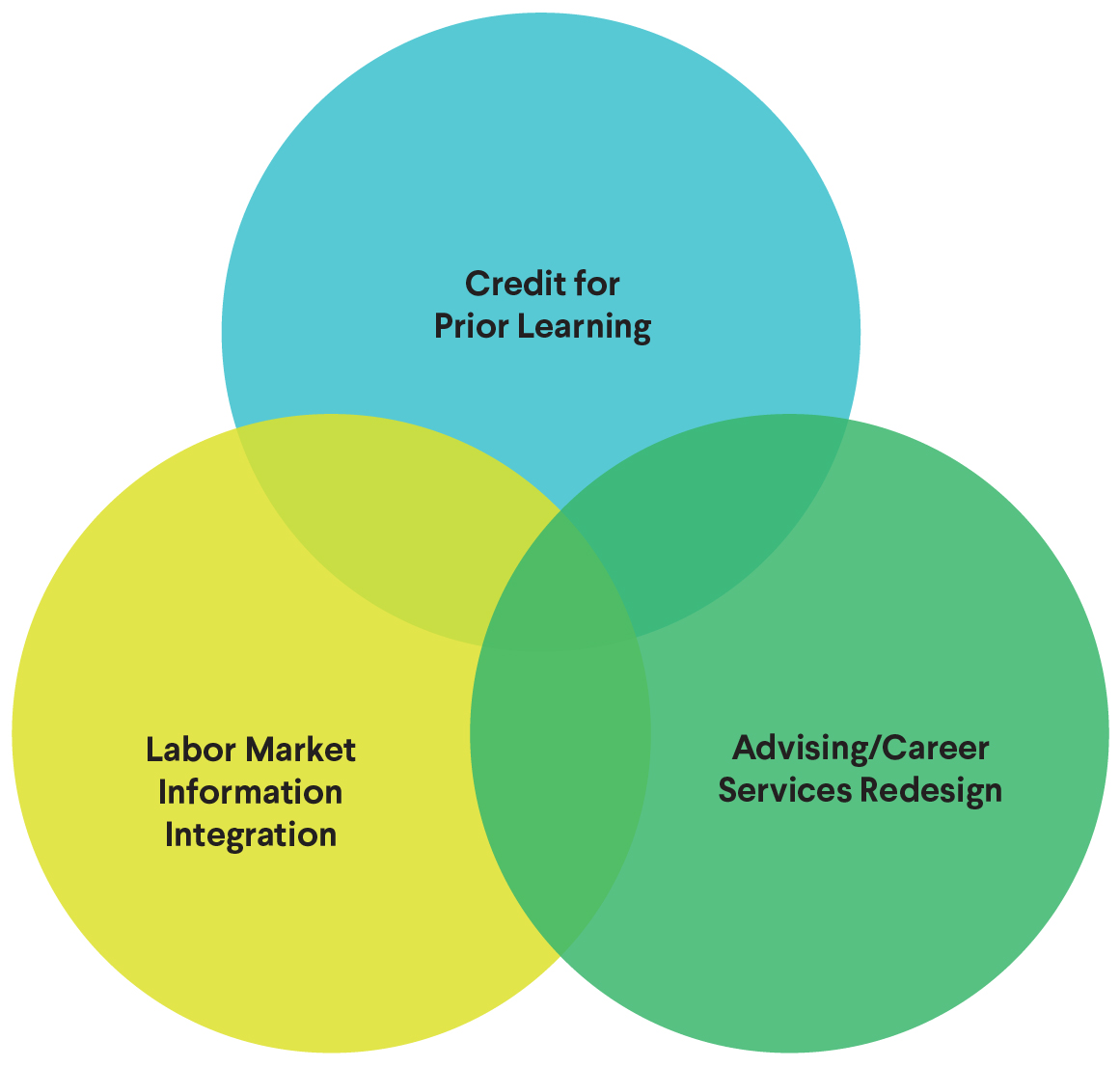 |
Redesign Student-Facing Materials
Train Faculty and Staff
Align Credentials
Systematic Data Collection & Access
Leadership Buy-in for Policy & Practice Change
Restructure Existing Departments
Inventory Current Processes
Address Undeclared & General Studies Students
State Team Profiles
The Michigan Office of Sixty by 30 | |||||||
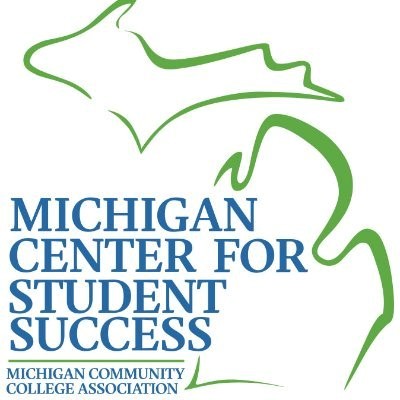 | 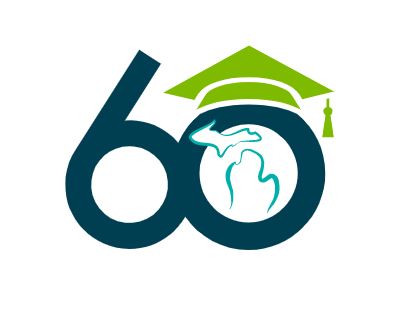 | ||||||
| The Michigan Office of Sixty by 30, in partnership with the Michigan Community College Association, is focusing on Credit for Prior Learning (CPL) policy and practice change for colleges to scale CPL efforts. They are working with participating colleges to inventory their current CPL processes, redesign institutional-facing and student-facing CPL materials, and train faculty and staff in revised CPL processes. | |||||||
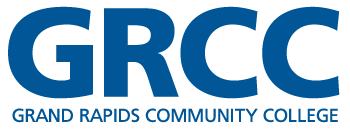 | 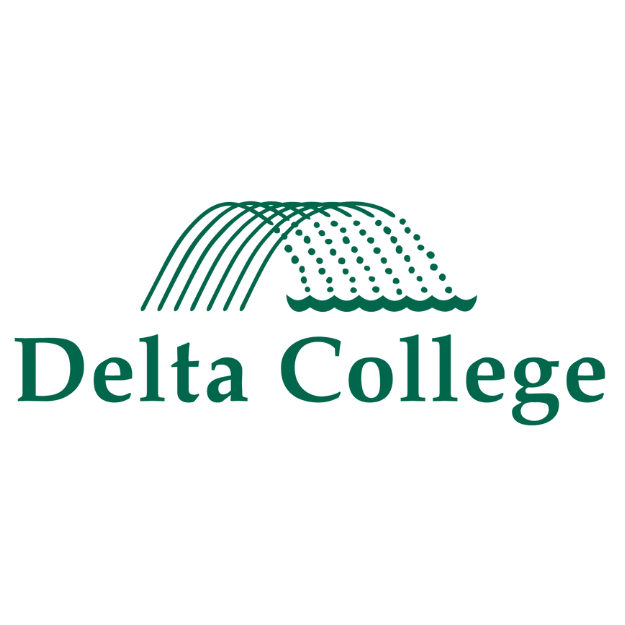 | 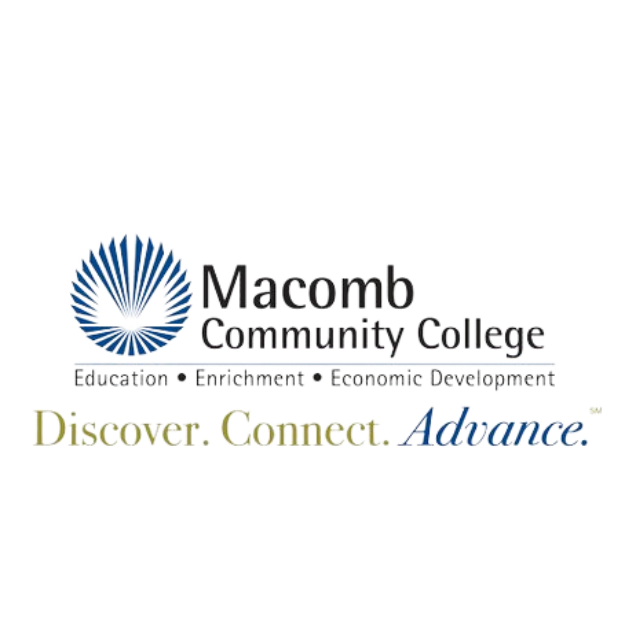 | |||||
| Train faculty and staff | Address undeclared & general studies students | Align credentials | Train faculty and staff | Redesign student facing materials | Inventory current processes | Train faculty and staff | Redesign student facing materials |
The Virginia Community College System | |||||||||
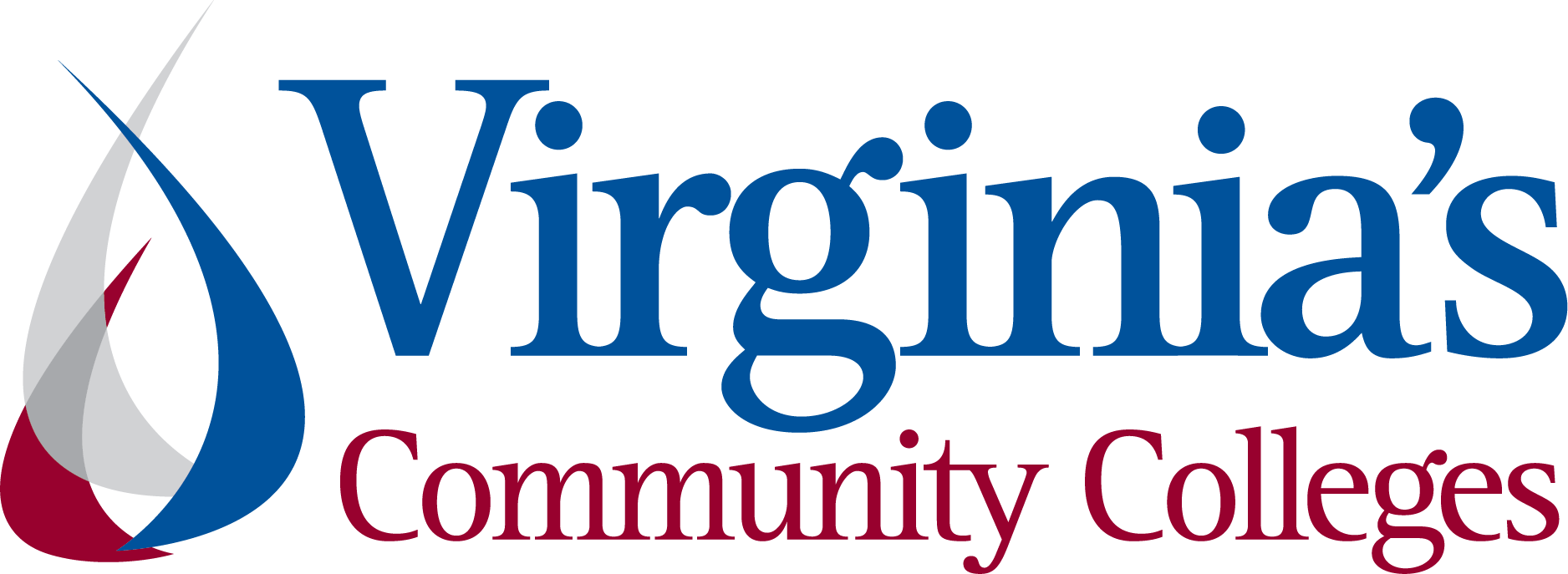 | |||||||||
| The Virginia Community College System is focused on improving access to credentials aligned with high-wage jobs, with a focus on Black women in health care careers. The Virginia Community College System is working with participating colleges to standardize Credit for Prior Learning (CPL) for Fast Forward training programs, improve data infrastructure to track eligibility for CPL, and provide training on CPL and career pathways for faculty and advisors. | |||||||||
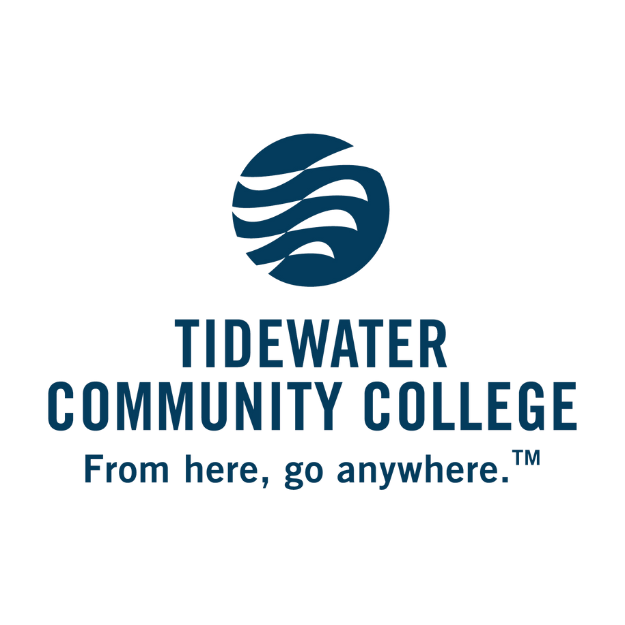 |  | 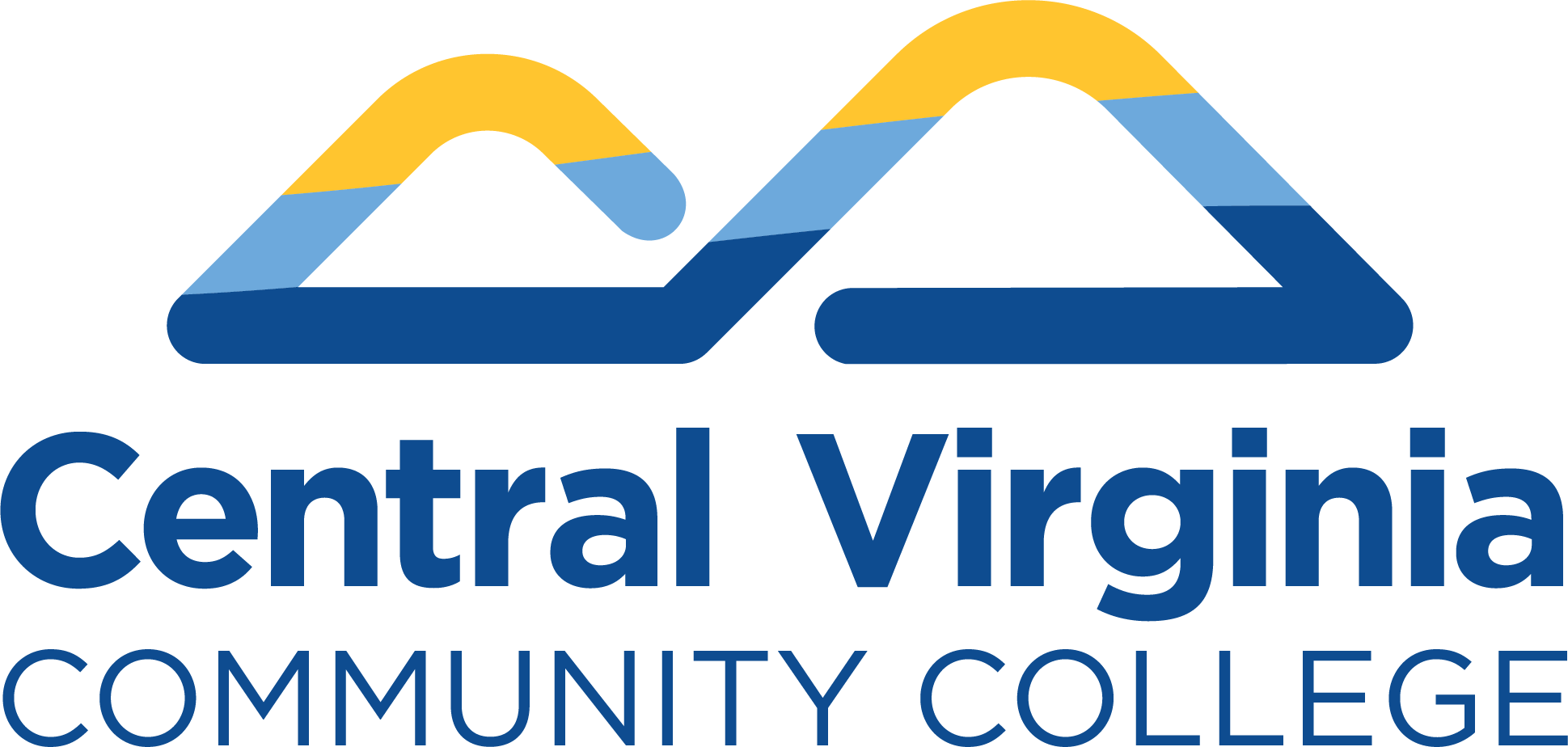 | |||||||
| Train faculty and staff | Align credentials | Systematic data collection & access | Train faculty and staff | Redesign student facing materials | Align credentials | Inventory current processes | Train faculty and staff | ||
| Redesign student facing materials | Restructure existing departments | ||||||||
The New Jersey Council of County Colleges | |||||||
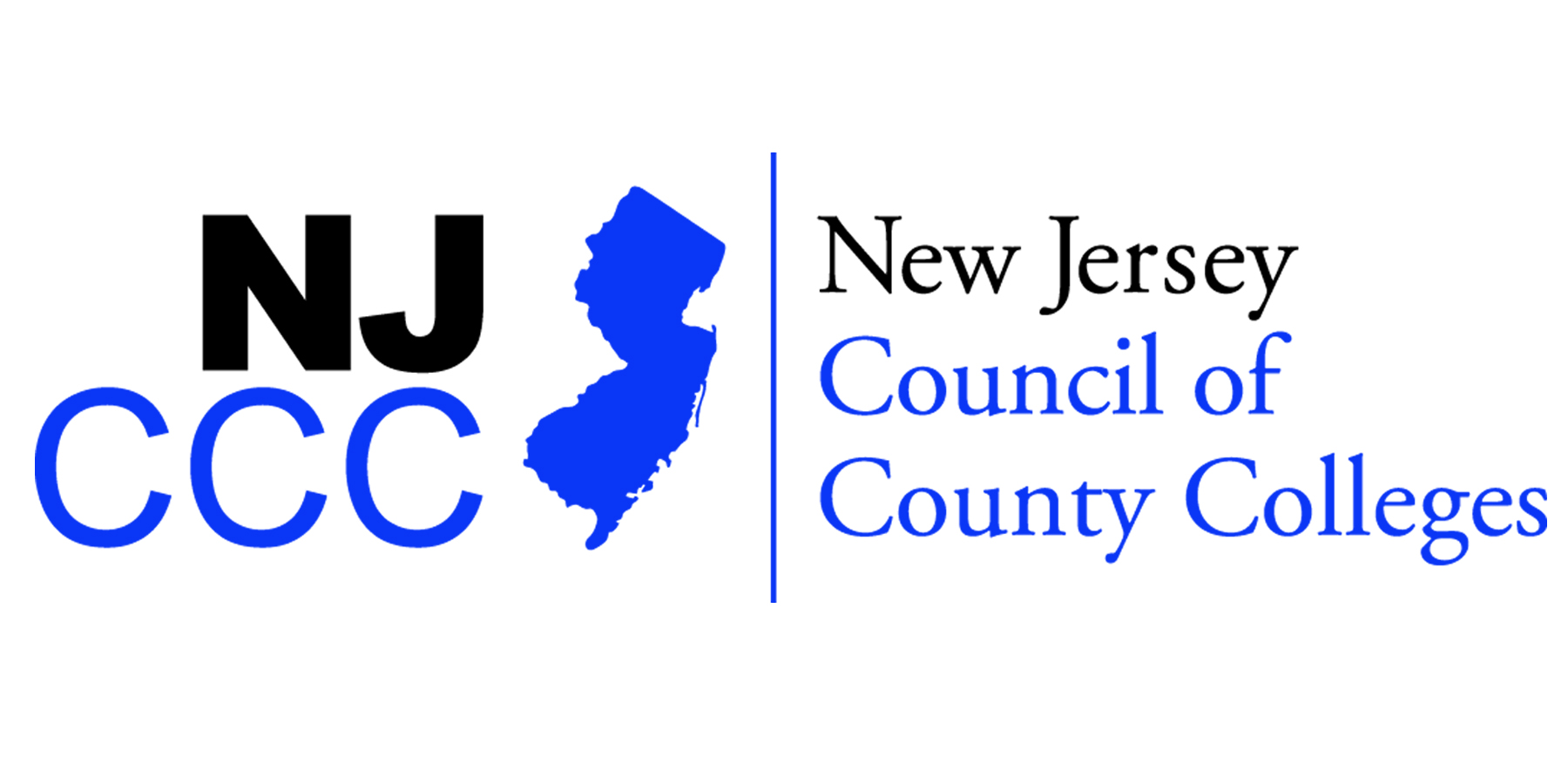 | |||||||
| The New Jersey Council of County Colleges (NJCCC) is focused on credit for prior learning transparency and affordability and supporting the New Jersey Pathways to Career Opportunities (Pathways) Initiative. They are working with participating colleges to re-engage part-time adult students, include labor market information (LMI) data into onboarding processes, and inventory current credit for prior learning (CPL) policies. | |||||||
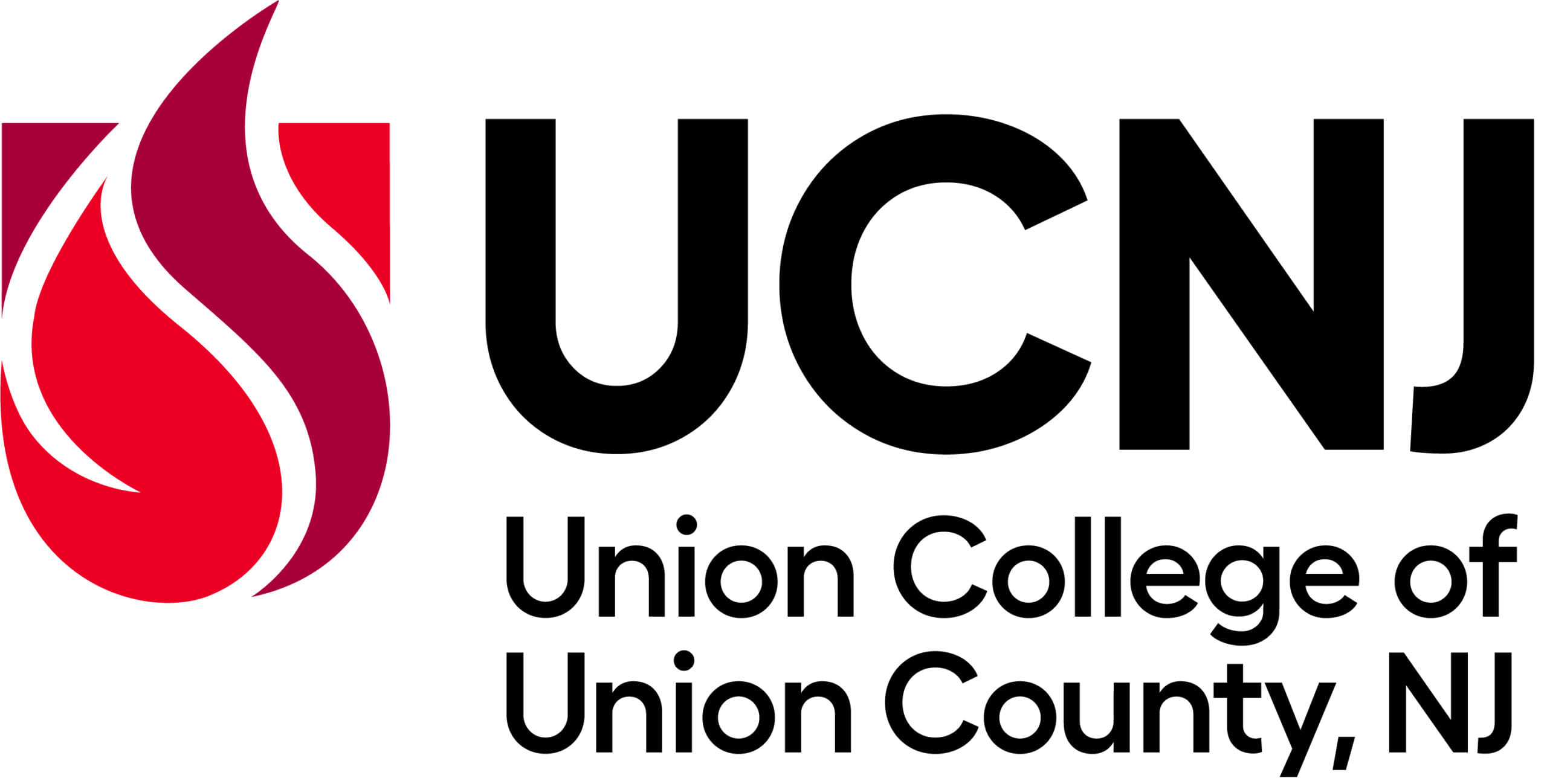 | 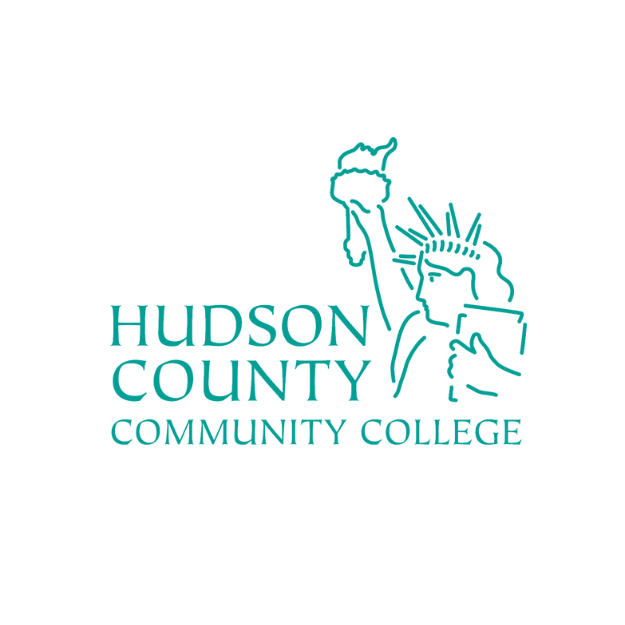 | 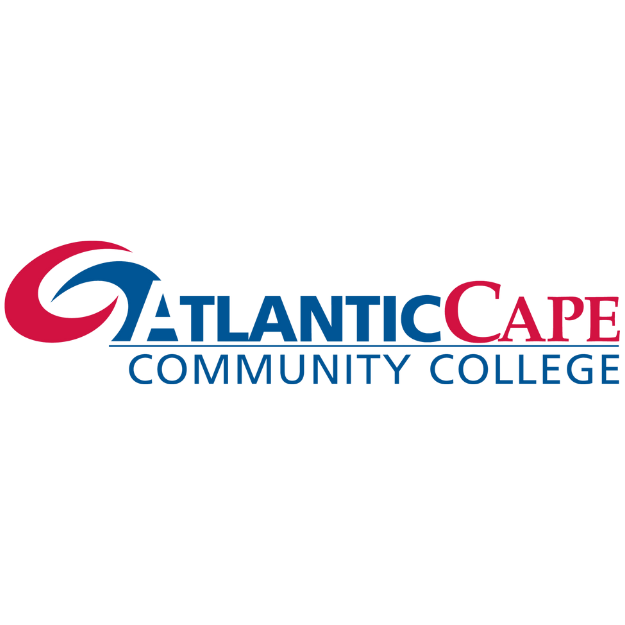 | |||||
| Systematic data collection & access | Inventory current processes | Redesign student facing materials | Systematic data collection & access | Leadership buy-in | Inventory current processes | ||
| Systematic data collection & access | Redesign student facing materials | ||||||
